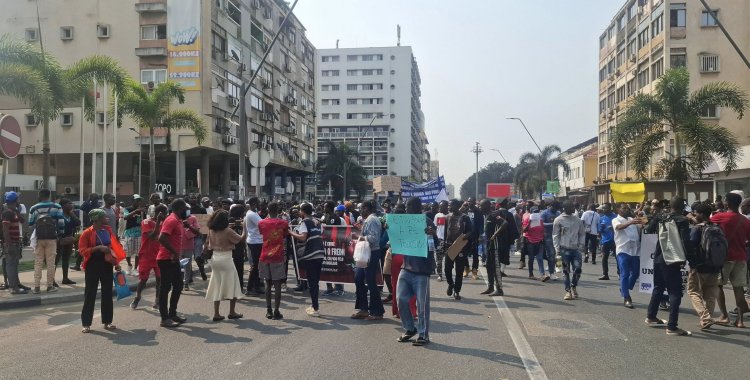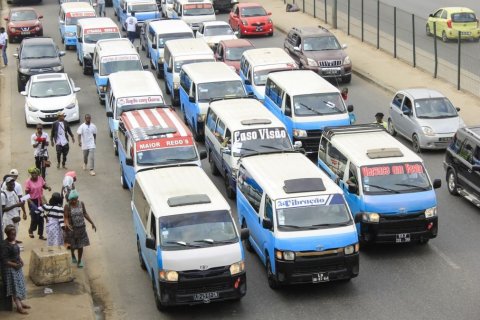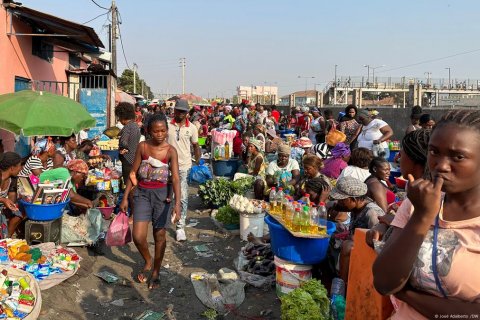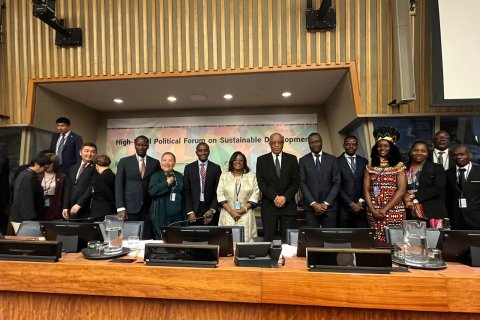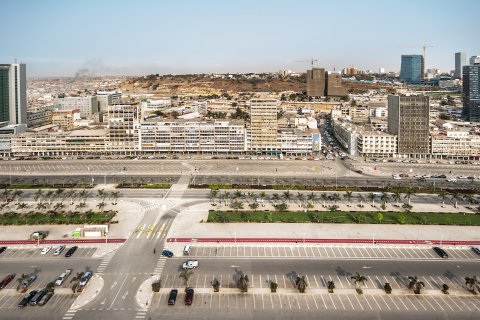Several citizens, including activists, students, parents, taxi drivers, street vendors (zungueiras), musicians, opposition politicians, and other civil society actors joined the march promoted by the Angolan Student Movement (MEA).
"Books, wallets, health, and education" were the chants chanted by protesters during the march, which departed at 1:00 pm local time from the São Paulo Market Square and headed for the Ministry of Finance in downtown Luanda. However, due to police barriers, the protesters failed to reach their intended destination.
On a day when the Luanda Provincial Command of the National Police mobilized thousands of troops for more than five hours, the main roads leading to the capital's center were blocked, preventing traffic from circulating due to the presence of protesters.
The march began on Cônego Manuel das Neves Street, amid heavy police presence following the protesters' route. Minutes later, on another side of the street, a group of street vendors decided to hold a spontaneous demonstration, chanting the high cost of living.
"Fear enslaves, courage liberates," "It's not just about overruling orders from above, lower the price of tuition fees," "They've already stolen too much from us, please, at least leave us with education," and "Down with tuition fees, down with fuel" were some of the slogans emblazoned on the protesters' signs.
After Cônego Manuel das Neves Street, the march continued along Alameda Manuel Van-Dúnem Street, and police barriers prevented the protesters from reaching the Ministry of Finance headquarters, passing through Avenida de Portugal.
Following widespread criticism of the police force, which blocked main roads with patrol cars and armed personnel, the protesters decided to gather at Largo do Zé Pirão, the intersection of Comandante Valódia Street, Alameda Manuel Van-Dúnem Street, and Ho Chi Minh Street, where the protests ended.
"Our intention was to reach the Ministry of Finance, as this institution issued the two decrees: the fuel and tuition fee hikes. Now, when we got here, they closed it. We won't go past them, they're armed; we'll stay here," Francisco Teixeira, president of the Ministry of Education (MEA), told Lusa.
According to the youth leader, the change in the march route, "imposed by the police," would be an opportunity to break the law, and he even considered the police "an instrument used by the government."
Regarding the reasons for the march, the official said: "It's to draw the government's attention to the increase in tuition fees, which is a serious violation of our rights. The country's social and economic situation is dire (...) and also to draw attention to the rise in fuel prices."
Eduardo Jesus, a government official, also joined the march, criticizing the government for being "insensitive" to the suffering of many parents unable to pay their children's tuition fees.
Activist Yared Bumba, in turn, said the march aimed to protest the government's measures, while also lamenting the current socioeconomic situation of families and the deterioration of inadequate schools.
Lucas Mendes, a law student, told Lusa that the protests were legitimate because the rise in tuition fees and fuel prices have negative implications for the lives of students and families.
Miguel Kimbenze, honorary president of the Ministry of Education and Culture (MEA), also joined the march in solidarity, arguing that the fight must continue to lift Angola out of its current predicament.
"We are fighting heart and soul to get Angola out of the situation it finds itself in. A country that has long been ruled by dictators. We have a government that is a tormentor of its own people," said Kimbenze, calling the MPLA the "cancer" of Angola.
On the occasion, the protesters also protested the arrest of activist Osvaldo Caholo, one of the protest organizers arrested in the early hours of Saturday. According to the Criminal Investigation Service, he is charged with inciting violence and rebellion.

